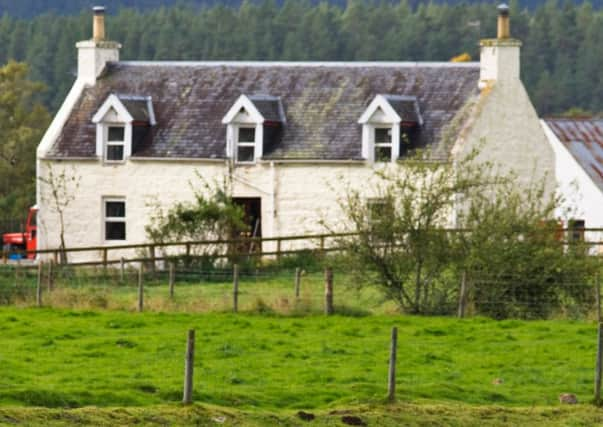Rural Scots homeowners seek loophole to avoid tax


Under the new rules, the sale of farm buildings, which are classified as non-residential, will be subject to just 4.5 per cent tax for the portion over £350,000, while ordinary homes would be subject to 10 per cent tax over £325,000 under the new rules.
If a home could be claimed to be a farm – if it had outbuildings and generated money from keeping animals such as chickens or pigs – it could potentially be reclassified, estate agents believe.
Advertisement
Hide AdAdvertisement
Hide AdThe move could make the property more attractive to prospective buyers, who could save thousands of pounds in taxes, compared to buying a property of a similar value which is classed as a residential home.
Homeowners who let out land around their properties, by renting a field to a farmer, or charging someone to keep a horse on their land, could also change the classification of their property.
“I would consider the general rule to be that mixed-used transactions fall within the ambit of a non-residential transaction, and so would be charged at the non-residential rate and not apportioned,” said David Strang Steel, partner at estate agent Strutt & Parker.
“If a farm worker’s cottage was sold as part of a farm, it would fall within non-residential use and attract non-residential rates.”
He added: “Obviously the difference in classification can mean quite a lot to a buyer – if one was to have a large house with 20 acres that was on the market for £1,200,000 the LBTT would be £102,350 whereas a farm being sold for £1,200,000 would have LBTT of £44,250 – a saving of £58,100.”
Evelyn Channing, director of rural sales at Savills, said: “It is a grey area, but what we need is for people to try it.”
Stamp duty will be replaced in Scotland by the LBTT next week when it becomes the first tax to be set by a Scottish Parliament in 300 years.
Previously, agricultural properties which sell for between £250,001 and £500,000 were subject to a 3 per cent stamp duty land tax, but under the new LBTT scheme, the banding for this level of tax would be reduced to between £150,000 and £350,000 – while anything above would be taxed at 4.5 per cent.
Advertisement
Hide AdAdvertisement
Hide AdResidential properties will see a 10 per cent tax slapped on any portion of the sale over £325,000.
Mark Hordern, chief executive of the Solicitors Property Centres Scotland, said only small numbers of rural properties would be affected by the higher rate tax.
“I can see why some people might be doing this,” he said.
“However, it is going to be in very low volumes – only 15 per cent of transactions in Scotland last year were over £350,000 and the great majority of expensive properties are in cities such as Edinburgh, Glasgow and Aberdeen.
“So, the number of expensive rural houses which might benefit from that sort of switch is going to be pretty small.”
The Scottish Government said each case would depend on the facts and circumstances as to whether or not a property is classed as residential or non-residential for tax purposes.
A spokeswoman said: “Our residential LBTT rates and bands, which were approved by the Scottish Parliament earlier this month, mean that no tax will be payable on 50 per cent of house purchases and more than 40,000 home buyers will pay less tax than they would under UK SDLT.
“Our tax decisions have been driven by the principle that taxes should be proportionate to the ability to pay. This government will do all it can to help people enter the housing market, because it is the right thing to do for our economy and our communities.”
FOLLOW US
SCOTSMAN TABLET AND MOBILE APPS